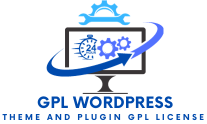The GNU General Public License (GNU GPL or simply GPL) is a series of widely used free software licenses or copyleft that guarantee end users the four freedoms to run, study, share, and modify the software. The license was the first copyleft for general use and was originally written by Richard Stallman, the founder of the Free Software Foundation (FSF), for the GNU Project. The license grants the recipients of a computer program the rights of the Free Software Definition. These GPL series are all copyleft licenses, which means that any derivative work must be distributed under the same or equivalent license terms.
The four basic freedoms guaranteed by the GPL License.
According to the Free Software Foundation, software can only be called ‘free’ if it guarantees four ‘fundamental freedoms’:
- freedom 0: freedom to run the programme for any purpose. Freedom to use a program means freedom for any kind of person or organisation to use it on any kind of computer system, for any kind of activity, and without having to subsequently communicate with the developer or some other specific entity. What counts for this freedom is the user’s purpose, not the developer’s; as a user, you can run the program for your own purposes; if you redistribute it to someone else, they are free to run it for their own purposes, but you cannot impose your purposes on them;
- Freedom 1: freedom to study how the programme works and to modify it according to one’s own needs. Access to the source code is a necessary condition for free software, otherwise Freedom 0 and 2 would not make sense either;
- Freedom 2: freedom to redistribute copies of the programme to help others;
- Freedom 3: freedom to improve the program and publicly distribute the improvements, so that the entire community benefits. This freedom includes the freedom to use and release modified versions as free software. A free licence may also allow other ways of distribution; in short, there is no requirement that it be a licence with copyleft. However, a licence that mandates that modified versions are not free cannot be categorised as a free licence.
A programme is free software if the user has all these freedoms. In particular, if he is free to redistribute copies, with or without modifications, for free or by charging distribution fees to anyone, anywhere. Being free to do these things means, among other things, that no permission must be asked or paid for.
Richard Stallman’s aim was to spread freedom and co-operation, encouraging the spread of free software as a replacement for proprietary software:
«I make my code available for use in free software, and not for use in proprietary software, in order to encourage other people who write software to make it free as well. I figure that since proprietary software developers use copyright to stop us from sharing, we cooperators can use copyright to give other cooperators an advantage of their own: they can use our code.»
(Richard Stallman, Copyleft: Pragmatic Idealism)
You can review the GPL License by reading our GNU General Public License article.

